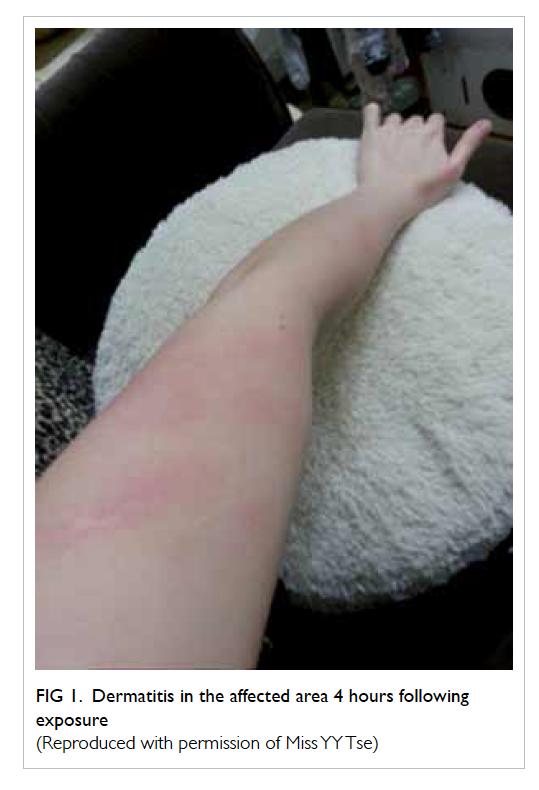Table of Contents
- Understanding the Chemical Composition of Pepper Spray and Its Potential Allergens
- Recognizing the Symptoms of Allergic Reactions to Pepper Spray
- Medical Treatments and When to Seek Emergency Care for Pepper Spray Allergies
- Preventative Measures and Safe Handling Tips to Minimize Allergic Risks
- In Summary
Understanding the Chemical Composition of Pepper Spray and Its Potential Allergens
At the heart of most pepper sprays lies an active compound known as oleoresin capsicum (OC), a naturally derived oil extracted from hot chili peppers. This oily resin contains capsaicinoids, which are responsible for the burning sensation upon exposure. However, many commercial formulations also include other ingredients such as propellants, solvents, and preservatives to enhance spray consistency and shelf life. Common additives include propylene glycol, alcohols, and fragrances, each potentially introducing additional variables when it comes to allergenic reactions. Understanding the full chemical cocktail is crucial, as it helps to identify why some users exhibit unexpected sensitivities or allergic responses despite the primary irritant being a natural compound.
When considering allergens, it is important to note that not all reactions stem from the OC itself. Some individuals may experience symptoms triggered by:
- Propellant gases such as nitrogen or carbon dioxide, which create the spray’s aerosol effect.
- Preservative chemicals that prolong product usability but can cause contact dermatitis or respiratory irritation.
- Contaminants or trace botanical elements inherent in the raw capsicum extract, which may provoke rare allergic responses.
Recognizing the Symptoms of Allergic Reactions to Pepper Spray
When exposed to pepper spray, most individuals experience immediate irritation, but for some, this exposure triggers more severe allergic symptoms that extend beyond typical discomfort. Recognizing these signs early is crucial to ensuring prompt medical attention and minimizing complications. Common allergic symptoms might include intense redness, swelling disproportionate to the exposure, persistent itching, and hives appearing away from the contact site. In more severe cases, individuals may suffer from difficulty breathing, wheezing, or tightness in the chest, which could indicate an anaphylactic reaction requiring emergency intervention.
It is important to distinguish between the expected effects of pepper spray and an allergic response. While temporary eye watering and skin burning are normal, these signs usually subside within minutes. Be alert for symptoms such as:
- Prolonged or worsening swelling around the eyes, face, or throat
- Rash or widespread skin irritation developing after initial exposure
- Shortness of breath or difficulty swallowing
- Dizziness or fainting, which may suggest systemic involvement
Considering the variability in individual sensitivity, those with a history of allergies or asthma should exercise extra caution and seek medical advice if symptoms escalate or do not resolve quickly.
Medical Treatments and When to Seek Emergency Care for Pepper Spray Allergies
If you experience an allergic reaction to pepper spray, the initial approach involves immediately flushing the affected areas with copious amounts of water or saline solution to remove irritants. Over-the-counter antihistamines and topical corticosteroids can help alleviate itching, redness, and swelling. Applying cool compresses may provide soothing relief from burning sensations. It’s important to avoid rubbing the area, as this can worsen irritation. In cases of mild symptoms, these home treatments typically suffice, but close monitoring is essential to ensure symptoms do not escalate.
Emergency care becomes necessary if you encounter any of the following symptoms, which may indicate a severe allergic reaction or systemic involvement:
- Difficulty breathing or wheezing
- Swelling of the face, lips, tongue, or throat
- Severe chest tightness or persistent coughing
- Rapid heartbeat or dizziness
- Loss of consciousness or confusion
Preventative Measures and Safe Handling Tips to Minimize Allergic Risks
To reduce the chances of experiencing an allergic reaction to pepper spray, it is essential to approach its use with caution and preparation. Always conduct a patch test on a small area of skin before carrying or using pepper spray extensively to identify any potential sensitivity. Additionally, take care to purchase pepper spray from trusted manufacturers that provide clear labeling of ingredients-some formulations may contain added chemicals or irritants that increase allergic risks. Proper storage is equally important: keep the canister away from extreme temperatures and direct sunlight to maintain its chemical stability and prevent accidental discharge or degradation.
When handling pepper spray, prioritize your safety and the safety of others by following these practical tips:
- Wear protective gloves when inspecting or testing pepper spray to minimize direct skin contact.
- Use in well-ventilated areas to avoid inhaling concentrated spray mist which may trigger respiratory reactions.
- Keep the canister pointed away from your face and body during use and practice proper aiming to avoid self-exposure.
- Have antidote measures ready such as saline solution or eyewash kits if accidental exposure occurs.
- Avoid combining pepper spray with other irritants or allergens, which can exacerbate symptoms.
In Summary
In summary, while pepper spray is an effective self-defense tool, it’s important to understand that allergic reactions, though relatively rare, can occur. Being aware of the potential symptoms and knowing how to respond can make a significant difference in managing any adverse effects safely. If you have a history of allergies or respiratory issues, consulting a healthcare professional before carrying or using pepper spray is always a wise choice. Staying informed helps ensure that your safety measures protect you without unintended consequences. Thanks for reading, and stay safe out there!Check Our Other Blogs
- StunGun – Your Trusted Source for Stun Guns, Laws, and Self-Defense Tips
- PepperSprayLaws – Your Trusted Resource for Pepper Spray Information
- StunGunLaws – Your Trusted Guide to Stun Gun Legality and Safety




